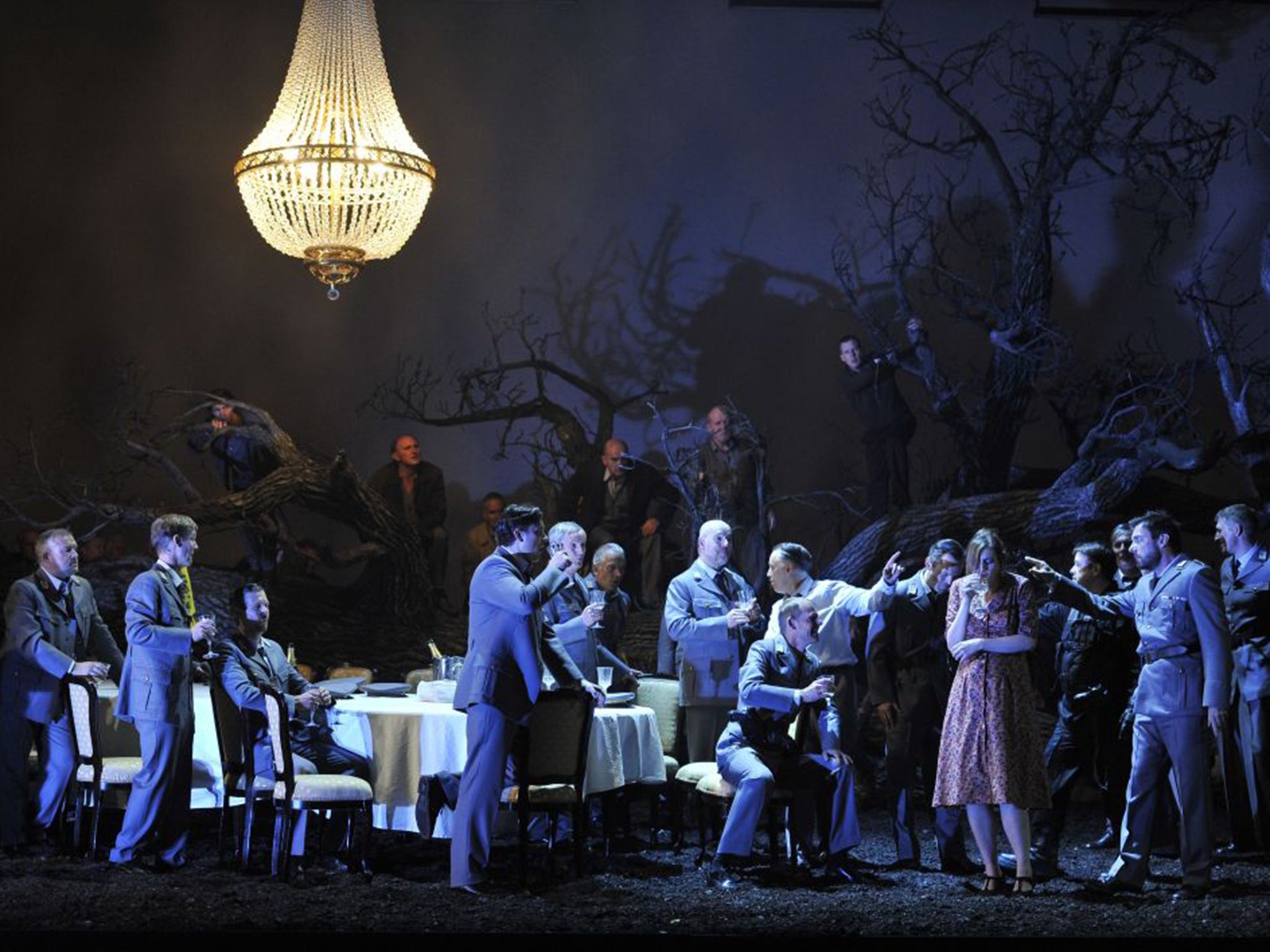Royal Opera House gang-rape scene toned down following 'hurricane of booing' on opening night
The Opera House had said it would stand by Italian director Damiano Michieletto’s staging of Guilliame Tell

Your support helps us to tell the story
From reproductive rights to climate change to Big Tech, The Independent is on the ground when the story is developing. Whether it's investigating the financials of Elon Musk's pro-Trump PAC or producing our latest documentary, 'The A Word', which shines a light on the American women fighting for reproductive rights, we know how important it is to parse out the facts from the messaging.
At such a critical moment in US history, we need reporters on the ground. Your donation allows us to keep sending journalists to speak to both sides of the story.
The Independent is trusted by Americans across the entire political spectrum. And unlike many other quality news outlets, we choose not to lock Americans out of our reporting and analysis with paywalls. We believe quality journalism should be available to everyone, paid for by those who can afford it.
Your support makes all the difference.The Royal Opera House has bowed to growing pressure and toned down a gang-rape scene so that the principal actress will no longer appear naked in its production of Guillaume Tell.
The Opera House’s volt-face follows Convent Garden’s director of Opera Kasper Holten claiming last week that the institution would “not apologise”– and that they had no intention to edit the now-controversial scene.
Guillaume Tell, also known as William Tell, is Italian director Damiano Michieletto’s a four-and-half-hour staging of Gioachino Rossini’s 1829 opera. The story is that of a famed Swiss soldier’s fight against Austrian invaders.
The controversial scene depicts the gang-rape of a woman, played by 28-year-old actress Jessica Chamberlain, but has reportedly been shortened and Ms Chamberlain’s character shielded by a tablecloth.
The production’s opening night on 29 June was overshadowed by the eruption of boos, jeers and walk-outs following the graphic scene.
Yesterday, Mr Holten confirmed that “a few smaller changes” had been made following the director’s suggestions but stressed that it was “not uncommon for the director to make tweaks during a run of performances.”
“We support the director in his right to make artistic judgments, including the changes he has suggested to the scene which caused concern to some members of the audience on the opening night,” Mr Holten told The Evening Standard.
“The scene still basically has the same outline and duration and makes the same point.”
Mr Michieletto’s work has not been overly well received. The Independent’s opera critic Michael Hall wrote the “offensive tastelessness of his depiction” of a rape o the opening night prompted a “hurricane of booing so loud, so angry, and so unanimous that the music was completely drowned.”
However, others have defended the production, pointing out that many theatre productions contain similar - if not worse - scenes of an upsetting or disturbing nature.
Join our commenting forum
Join thought-provoking conversations, follow other Independent readers and see their replies
Comments